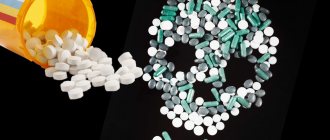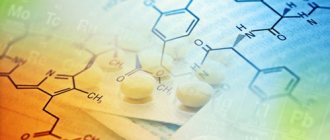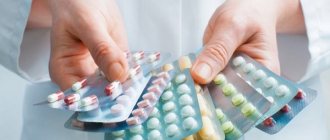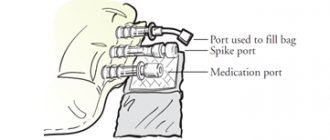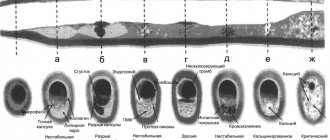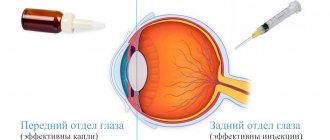Forty-five years is considered a transitional stage in a woman’s life: the time comes when the body begins to prepare for menopause, which is reflected in the hormonal background and entails various symptoms. Menopause is not only the cessation of menstruation, the appearance of hot flashes and the inability to get pregnant. A woman’s hormonal system begins to work in a different mode, and this happens a year or two before the cessation of menstruation. The onset of premenopause is indicated by a routine hormone test, which a woman can take at any center. The “Formula Health” gynecological clinic carries out hormone tests and gives accurate results.
Hormone analysis
We will not go into detail about the structure of a woman’s hormonal system. You should know only one thing - with the onset of menopause, the production of estrogen in the female body decreases. And to compensate for this decrease, the pituitary gland begins to produce increased levels of follicle-stimulating hormone - FSH. Natural estrogen is reduced, the amount of FSH is increased, which contributes to increased production of another LH hormone - luteinizing hormone. There comes a time when a woman can no longer conceive.
So, in order to understand whether an existing menstrual cycle disorder is a harbinger of menopause or is it a consequence of some disease, a woman takes a blood test for the following types of hormones:
- FSH content - a low FSH rate (10 units) is typical for women of reproductive age. If FSH reaches 20 units, the woman has entered premenopause. The normal FSH level in the blood when approaching menopause is 30-40 units. A year after the cessation of menstruation, this number increases to 125 units.
- Estradiol content. This is the main hormone among estrogens, responsible for the strength of bones, the amount of fat, and the elasticity of the skin. Lack of estradiol leads to the risk of fractures and atherosclerosis. During menopause, the norm of estradiol is from 8 to 82 units. When the limit is low, a woman has no libido, severe dry skin, including dryness of the vaginal mucosa, and a noticeable weight gain. At the upper limit, there is a risk of benign tumors, kidney problems, and the woman feels increased fatigue. This analysis is necessary for the doctor to decide on the advisability of prescribing hormone replacement therapy.
- Contents of LG. This hormone is responsible for the maturation of the egg and the onset of ovulation. During menopause, the LH value is increased: with a norm of 5-20 units, the content in menopause increases to 29-50 units. This value is necessary to calculate the proportional content of FSH to LH. Typically this value during menopause is between 0.35 and 0.75. A lower value means the symptoms of menopause are more pronounced.
- Progesterone content. The normal level of progesterone during menopause is from 0.50 to 0.64 units. Before the onset of menopause, this value is lower, which provokes mood swings.
The first symptoms of menopause in women aged 40-50: how does menopause begin?
Among the main signs of menopause after 40, which appear first, are the following:
- Hot flashes, sweating. Hot flashes are the first signs of menopause, which 75-85% of women experience. Hormonal changes in the body during menopause affect thermoregulation processes. As a result of changes in hormonal levels during menopause, a woman may suddenly experience bouts of fever, which usually last several minutes and go away on their own. The mechanism of their occurrence is associated with the effect of estrogens on the hypothalamus, which contains the thermoregulation center that controls the processes of retaining heat by the body. When the amount of estrogen decreases during menopause, signals are sent to the hypothalamus that the body is overheating, which results in increased sweating and dilation of peripheral blood vessels. At such moments, the woman’s face and neck turn red, beads of sweat appear on the skin, the heartbeat quickens, dizziness, nausea and weakness may be present. At the end of the attack, profuse cold sweat may appear, accompanied by trembling.
- Heart rhythm disturbances during menopause. Tachycardia during menopause is caused by a decrease in estrogen levels, which normally affects the maintenance of normal functioning of the cardiovascular system.
- Dizziness, headache. These symptoms of incipient menopause can be caused by high/low blood pressure, as well as its sudden changes.
- Forgetfulness. Changes in hormonal levels lead to a decrease in vascular tone and affect cerebral circulation, which is why women during menopause complain of memory problems.
- Unstable emotional background during menopause. A decrease in the level of estrogen and endorphins leads to tearfulness, irritability and excessive sentimentality.
- Lack of thyroid hormones (hypothyroidism). Symptoms of hypothyroidism in menopausal women include apathy, difficulty concentrating, and hair loss.
- Vaginal dryness, itching and burning in the vagina during menopause. Due to a decrease in estrogen levels, there is a decrease in the production of natural vaginal lubrication, the intensity of blood flow in the vessels of the vaginal walls decreases, and thinning of the mucosa occurs. All this leads to dryness and itching; intimacy during menopause causes painful sensations.
- Osteoporosis. Osteoporosis is one of the dangerous symptoms of menopause that can lead to bone fractures. The reason for the decrease in bone density is the gradual leaching of calcium from the body, as well as a disruption in the absorption of phosphorus and vitamin D, a lack of silicon, boron, fluorine, magnesium and manganese.
- Gaining excess weight. Weight changes are explained by a decrease in the rate of metabolic processes, an attempt to compensate adipose tissue for extragonadal synthesis of sex hormones, which is one of the characteristic symptoms of female menopause.
- Decreased skin tone. One of the functions of estrogens is to maintain the elasticity of the skin. As the production of these hormones decreases, skin tone deteriorates, resulting in wrinkles, dryness, and flaking during menopause.
- The occurrence of mastopathy and chest pain due to ongoing hormonal changes.
How to take a hormone test correctly?
Blood tests are taken on certain days of the cycle - the day of the test will be calculated by the doctor. So tests for FSH and LH are taken at the beginning of the cycle - on days 4-5. Analysis for estradiol - 19-22 days. Progesterone test at the same time. There are a number of restrictions before donating blood for hormones; they must be observed, otherwise the result will be distorted. Avoid alcohol and physical activity a week before the test. Do not have sex the day before the test day. Take the test strictly on an empty stomach - in the morning, the break from the last meal should be at least 8 hours. You can drink water. Do not take medications.
How to reduce symptoms and signs of menopause in women: useful tips
With the onset of menopause, it is recommended to adhere to the following recommendations:
- Move more, engage in feasible sports and physical exercise.
- Master breathing and relaxation techniques
- Eat right and stay hydrated.
- Exercise your brain (read, solve crosswords, learn foreign languages).
- Perform exercises that train fine motor skills.
Remember: a correct lifestyle and timely consultation with a doctor if necessary will allow you to reduce unpleasant symptoms during menopause!
Sources:
- SOFT CLIMAX. Zhexembinova R. S. // Bulletin of surgery of Kazakhstan. – 2011. – No. 4. – P.98.
- MODEL OF SPECIALIZED CARE FOR WOMEN WITH Climacteric Disorders. Kholodova L.N., Protopopova N.V., Kravchuk L.A., Sharifulin M.A. // Siberian Medical Journal (Irkutsk). – 2004. – P. 76-77.
- Guide to outpatient care in obstetrics and gynecology / ed. V. E. Radzinsky. — 2nd ed., revised. and additional - M.: GEOTAR-Media, 2014. - 944 p.
- Gynecology: textbook. for universities / ed. G.M. Savelyeva, V.G. Breusenko. — 4th ed., revised. and additional - M.: GEOTAR-Media, 2012. - 432 p. : ill.
- https://www.medicinenet.com/menopause/article.htm
- Menopausal syndrome. EAT. Vikhlyaeva // Guide to endocrine gynecology. - M.: MIA. - 1998. - P. 603-650.
- Therapy of depressive disorders in general medical practice. Dubnitskaya, E.B. A.V. Andryushchenko // Modern psychiatry. – 1998. – No. 2. – pp. 10-14.
- Menopause and perimenopausal period. R.B. Jaffe // Reproductive endocrinology. Edited by S.S.K. Yen, R.B. Jaffe. – M.: Medicine. - 1998. - T.2. – pp. 560-586.
- https://www.menopause.org/for-women/menopauseflashes/menopause-symptoms-and-treatments/are-we-there-…
- https://www.healthline.com/health/menopause/symptoms-signs
- https://nccih.nih.gov/health/menopause/menopausesymptoms
Why do you need to know these values?
To prepare for menopause. In addition to prescribing replacement therapy, a woman should introduce calcium-containing foods into her diet: cottage cheese, fermented milk products, cheese to prevent osteoporosis. You need to undergo a gynecological examination: take a smear for oncocytology, do an ultrasound of the pelvic organs and mammography. You should donate blood for sugar and cholesterol levels. Adjust your diet, move more, follow a sleep and rest schedule. Your doctor may prescribe vitamins or supplements to relieve menopausal symptoms.
Obstetrician-gynecologist of the highest category. Chernovskaya Rosa Uranovna
Problematic features of menopause in women: symptoms and treatment
In some cases, the manifestations of menopause cause a woman such a severe deterioration in her quality of life that she has to seek medical help to reduce them. Below you will find general information regarding the treatment of menopausal symptoms, but remember that treatment should be prescribed by a specialist.
Self-medication can lead to new health problems and worsening symptoms of menopause.
Treatment of hot flashes during menopause
For frequent and intense hot flashes that cause physical and emotional discomfort to a woman, menopausal hormone therapy (MHT) medications may be prescribed. They contain analogues of sex hormones - both plant and synthetic origin. More often it is a combined drug based on estrogen and progesterone, which has a protective effect on the uterus (endometrium) and mammary glands.
To achieve the best results, it is advisable to start taking hormone replacement drugs at the very beginning of menopause, when its first symptoms appear. The dosage and regimen should be drawn up by a doctor, taking into account the woman’s general health, medical history, age, TSH, FSH levels.
Despite the fact that menopausal hormone therapy can reduce the unpleasant symptoms of menopause, in some cases its prescription is impossible. We are talking about absolute contraindications to taking MHT - such as heart attack (Infarctus) and/or stroke (Insultus), deep vein thrombosis, renal or liver failure, hormone-dependent oncological diseases, autoimmune diseases.
Preparations based on phytoestrogens, for example, Climafemin Ginocomfort, act as an effective alternative to MHT. This is a dietary supplement that contains the phytoestrogen genistein, an organic substance that helps reduce hot flashes and sweating, normalizes metabolism and hormonal levels, and improves sleep quality. In addition to genistein, the product contains active ingredients such as vitamin E, coenzyme Q10 and grape seed extract. All of them have a beneficial effect on a woman’s body, helping to preserve youth and normal well-being.
Treatment of hypertension during menopause
If the symptoms of menopause are accompanied by increased blood pressure, treatment may also include taking antihypertensive drugs (diuretics and diuretics).
Normalization of psycho-emotional state
If during menopause a woman experiences serious emotional instability, even to the point of developing depressive states, she may be recommended sedatives, and in especially severe cases, antidepressants.
Therapy for osteoporosis during menopause
To combat such a symptom of menopause in women as osteoporosis, they are prescribed to take bisphosphonates, calcitonin, strontium preparations, fluoride salts, vitamin-mineral complexes and food supplements containing boron, calcium, vitamins K1 and D. During menopause, it is recommended to include foods in the diet foods rich in calcium and vitamin D (milk, hard cheese, poppy and sesame seeds, soy, nuts, fresh herbs, fish; beef and pork liver, egg yolks, fish oil, cod and halibut liver, butter).
To reduce the manifestations of osteoporosis during menopause, it is necessary to stop smoking, since tobacco helps remove calcium from the body.
Combating vaginal dryness during menopause
To solve the problem of vaginal dryness caused by the onset of menopause, you can use special intimate gels. For example, you can use the Gynocomfort moisturizing gel, which provides relief from natural vaginal secretions and eliminates itching, dryness, burning and irritation in the vagina.
This product was tested during clinical studies conducted at the Department of Dermatovenereology with the clinic of St. Petersburg State Medical University, under the leadership of Ignatovsky A.V. and Sokolovsky E.V. Clinical studies have shown that due to the components included in the gel, the use of the product helps to achieve good hydration.
Neurologist Dmitry Shubin and the appearance of menopause. Live healthy!
The mucus-like consistency of mallow extract, which is part of the product, envelops and moisturizes the mucous membrane of the vulva, has a mild soothing and anti-inflammatory effect on it. Chamomile extract has a beneficial effect on existing microcracks, promoting their speedy regeneration. Panthenol and bisabolol eliminate irritation and have antibacterial properties. Moisturizing gel "Ginocomfort" was developed by specialists from a pharmaceutical company and has the necessary certificates of conformity.
Also, during menopause, a gynecologist may recommend the use of vaginal suppositories containing herbal or synthetic analogues of sex hormones. Some folk remedies for treating crisis symptoms can also be extremely effective. But it is better to coordinate everything with your doctor.
The use of such products helps to normalize the thickness of the mucous membrane during its atrophy, enhance the formation of vaginal secretions, and maintain an optimal level of acidity.


